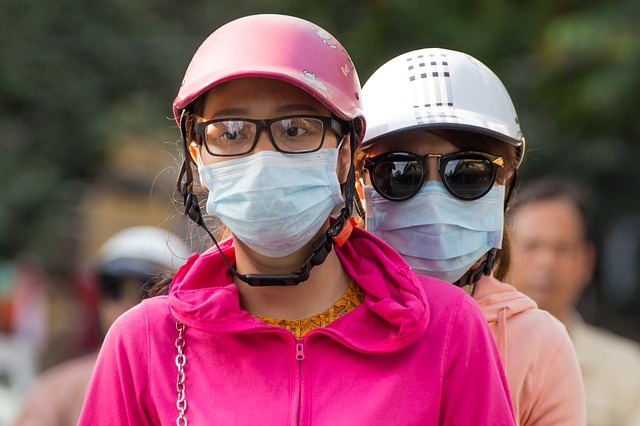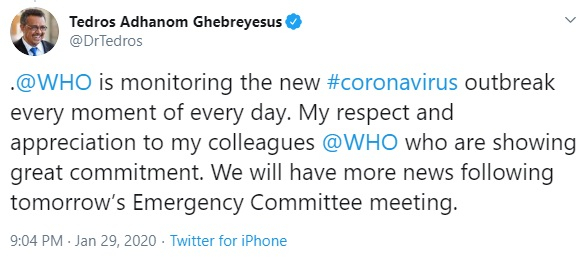More than 15 countries have confirmed coronavirus infections, while the death toll in China reached 170, as on Thursday morning. A total of 7,711 cases have been reported in China, the majority of which have occurred in China's Hubei province, which has been the epicentre of the epidemic.
On Thursday, the World Health Organization's (WHO) emergency committee will hold a meeting to discuss whether to declare the coronavirus outbreak-a Public Health Emergency of International Concern (PHEIC).

Death toll reaches over 170; virus spreads to Tibet
A total of 7,711 cases have been confirmed in China; while the death toll reached over 170 on Wednesday, from 132, a day earlier, China's Global Times reported.

The death toll increased by 29 percent in a day. Of the 38 deaths confirmed on Wednesday, 37 were reported in China's Hubei province and one in Sichuan province. On Thursday morning, Tibet confirmed its first case, BBC reported. This means that virus has now spread to all of mainland China's 31 provinces, municipalities and autonomous regions.
In total 7,894 cases have been reported from around the world till now, which brings the tally close to the SARS outbreak in 2002-03, during which about 8,000 persons were infected and 800 lost their lives.
WHO's meeting on Thursday
After his two-day trip to Beijing, WHO's Director-General Tedros Adhanom Ghebreyesus couldn't stop lauding Chinese efforts to contain the spread of the deadly novel Coronavirus (2019-nCoV).
But in the light of infection cases mounted at an accelerated pace and human-to-human transmission being reported by Japan, Germany and Vietnam; WHO's expert committee will meet on Thursday to discuss whether to declare the coronavirus outbreak-a Public Health Emergency of International Concern (PHEIC).

In the meeting held last week, the global health body was reluctant to declare the outbreak-a global health emergency, due to limited spread outside China. The current decision comes after Japan, Germany and Vietnam have confirmed cases of human-to-human transmission. "This potential for further global spread is why I called the EC", WHO chief said on Wednesday.

So far, no deaths have been reported outside China, but the declaration of PHEIC would bring global attention to the issue and co-ordinate international response to deal with the crisis. PHEIC is the loudest alarm the WHO can ring to draw global attention towards an epidemic. It was declared in the past for swine flu, polio, ebola and zika outbreaks.









